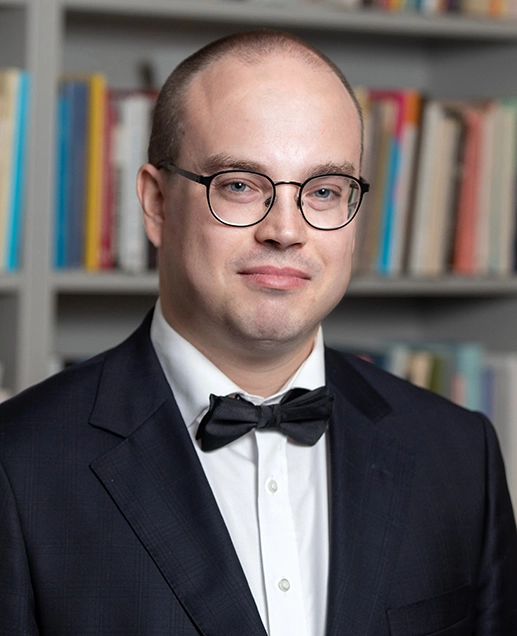
Photo: Johan Wahlgren / SCAS
Ivan Miroshnikov was born in Moscow in 1986. In 2008, he received his Specialist Diploma (equivalent to an M.A.) in Religious Studies from Moscow State University.
“In Soviet universities, there was a discipline called ‘scientific atheism’, considered to be a philosophical ‘science’ taught at the faculties of philosophy. ‘Scientific atheism’ was rebranded as ‘religious studies’ after the collapse of the Soviet Union, but the connection with philosophy remained, and so my training pertained to both these academic disciplines”, Miroshnikov explains.
In 2011, Miroshnikov moved to Finland for his doctoral studies, and five years later he defended his doctoral dissertation at the Faculty of Theology at the University of Helsinki.
Captivated by Coptic dialectology
Miroshnikov found his way to Coptology through an interest in the Gospel of Thomas, an early Christian text of which the only complete surviving copy is in Coptic.
“I was enchanted with this difficult and deeply poetic text. To study it, I had to learn Coptic, and eventually I became as enchanted with the language as I was with the text,” he says.
After Miroshnikov defended his doctoral dissertation, his research interest gradually shifted from early Christian studies to Coptic philology. He is currently working to publish various unedited manuscripts in Coptic.
“I am especially fascinated by Coptic dialectology, an area of research focusing on the dialects of Coptic. In many respects these dialects remain unexplored,” Miroshnikov says.
This subject is central in his current research project, entitled The Neglected Dialects: A Study of the Manuscripts and Literature in Fayyūmic and Bohairic Coptic.
The joy of discovery
Miroshnikov is passionate about manuscript research, and he describes the “joy of discovery” as the most exciting part of it.
“It is very inspiring to find papyrus fragments that come from the same manuscript, manage to join them together, and suddenly see a meaningful text, or to identify the contents of a fragment with a known literary work, which in turn allows you to restore the text lost in the lacunae”, Miroshnikov says.
He also points out that manuscripts written in the lesser-known Coptic dialects often bear witness to hitherto unknown linguistic phenomena.
“This does in turn make it possible to contribute new knowledge to Coptic phonology, lexicography, and morphosyntax”, he explains.
The obvious choice
Miroshnikov is now settling in at the Faculty of Theology. He found his way here through the Swedish Collegium for Advanced Study in Uppsala, where he became a Pro Futura Scientia Fellow in 2020.
As part of this research program for early-career scholars in humanities and social science, each fellow is supposed to spend one of the allotted five years at a ‘foreign institute for advanced study or other cutting-edge research institute’.
“In my case, the Faculty of Theology at the University of Oslo was the obvious choice,” Miroshnikov says and concludes:
“Professor Hugo Lundhaug has kindly agreed to host me this year, and I am very excited to work closely with him and the other members of the APOCRYPHA-project”.